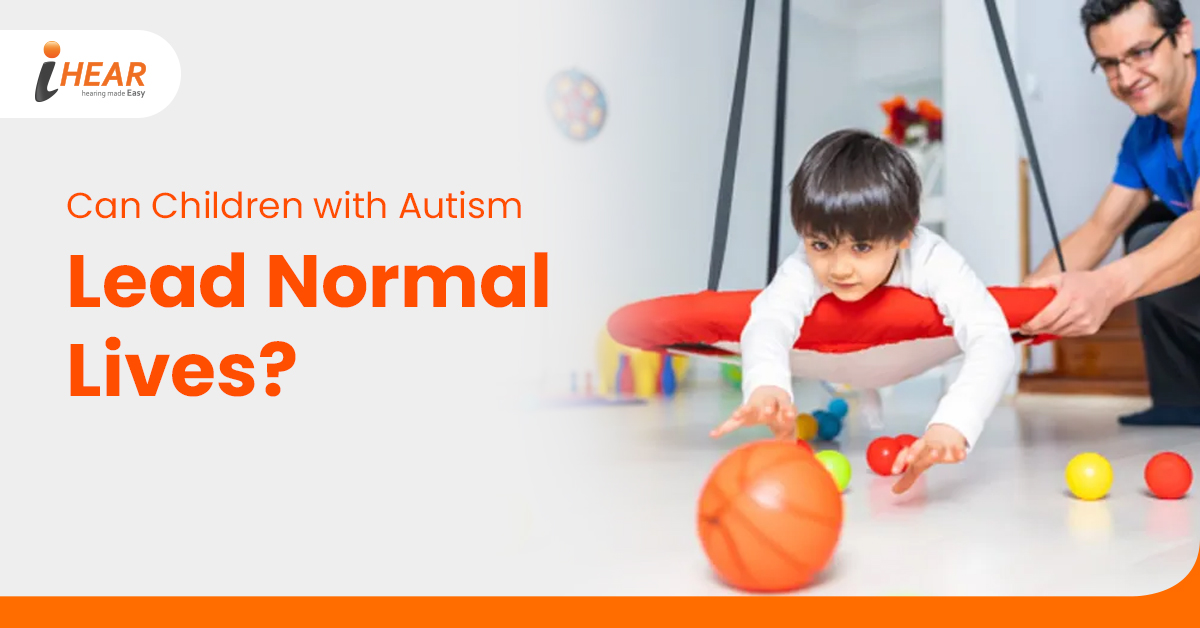Can Children with Autism Lead Normal Lives?
Autism Spectrum Disorder (ASD) is a neurodevelopmental condition that presents challenges in social communication, behavior, and sensory processing. One common question that often arises is whether children with autism can lead normal lives. The answer to this question is nuanced and varies for each individual. While the term “normal” can be subjective, it is essential to recognize the potential for individuals with autism to lead fulfilling and meaningful lives. Let’s explore the factors that contribute to the capabilities and possibilities for children with autism.
Early Intervention and Support: Early intervention plays a crucial role in shaping the trajectory of a child’s development. The earlier a child with autism receives appropriate interventions and support, the better the chances of addressing specific challenges. Early interventions may include speech therapy, occupational therapy, behavioral interventions, and educational support. These targeted interventions equip children with essential skills, fostering greater independence as they grow.
Individualized Approach: Autism is a spectrum disorder, meaning it manifests differently in each individual. Recognizing and respecting the unique strengths and challenges of each child is key to providing effective support. Tailoring interventions to the specific needs of the child ensures a more personalized and meaningful approach to their development. An individualized plan considers factors such as communication preferences, sensory sensitivities, and learning styles.
Educational Inclusivity: In recent years, there has been a significant push towards inclusive education, promoting the idea that children with autism can learn and thrive alongside their neurotypical peers. In inclusive settings, children with autism have the opportunity to engage in social interactions, develop friendships, and participate in academic and extracurricular activities. The support of dedicated educators and a positive school environment is instrumental in fostering a sense of belonging.
Social Skills Development: Social skills can be a challenge for individuals with autism, but targeted interventions and social skills training can significantly enhance their ability to navigate social situations. Learning to understand and interpret social cues, communicate effectively, and engage in reciprocal interactions are skills that can be developed over time. Social skills training provides practical tools for children with autism to build and maintain relationships.
Transition to Adulthood: As children with autism transition to adulthood, there is an increasing focus on preparing them for independent living and employment. Transition planning involves developing skills necessary for daily living, vocational training, and exploring potential career paths. With appropriate support, many individuals with autism successfully navigate the challenges of adulthood, contributing meaningfully to their communities.
Supportive Families and Communities: The role of families and communities in supporting individuals with autism cannot be overstated. A supportive and understanding family environment provides the foundation for a child’s growth and development. Likewise, inclusive communities that embrace neurodiversity foster acceptance and opportunities for individuals with autism to lead fulfilling lives.
In answering the question of whether children with autism can lead normal lives, it’s essential to redefine what “normal” means. Normalcy, in the context of autism, encompasses the pursuit of happiness, personal growth, and meaningful connections. While individuals with autism may face unique challenges, they possess a wealth of untapped potential waiting to be unlocked.
Through early intervention, individualized approaches, inclusive education, and ongoing support, children with autism can indeed lead lives filled with possibilities. It is crucial for society to embrace neurodiversity, fostering environments that recognize and celebrate the strengths of individuals with autism. By doing so, we create a world where everyone, regardless of their neurodevelopmental profile, can live a life that is not only normal but uniquely extraordinary.
Assist your Child with Autism through IHEAR Care
Despite facing challenges with everyday tasks during their early years, early diagnosis and intervention can enable autistic children to flourish. IHEAR offers Occupational Therapy and Early Intervention Programmers (EIP) to help your autistic child lead independent and self-sufficient lives.
We recognize that the distinctive perspectives through which autistic children perceive the world can present both advantages and challenges. Our skilled therapists and childhood development specialists are dedicated to assisting your child in recognizing their strengths and weaknesses, fostering confidence as they navigate life’s journey.

